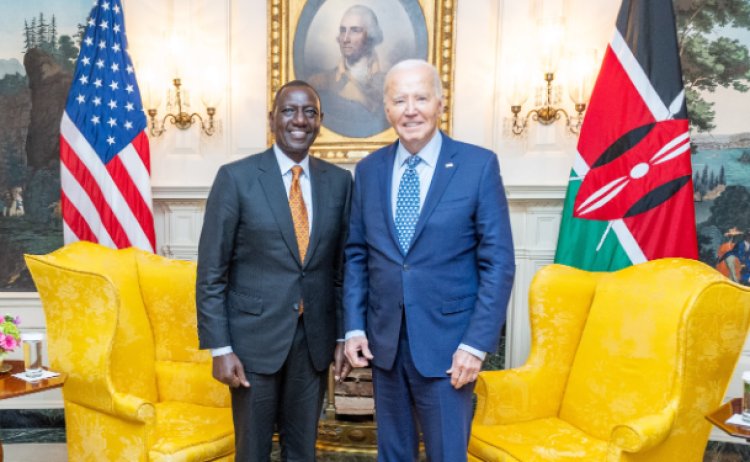Kenyans React to USA Donation for Education, Expresses Concern
The reactions on social media reflect a mixture of hope, skepticism, and cautious optimism regarding the implications of foreign aid for Kenya's development trajectory

Kenya's social media platforms have buzzed with reactions following the announcement of a Ksh3.2 billion donation from the United States towards the Kenya Primary Literacy Program for grades 1-3 learners. While many view the news as a positive development for education, others have expressed skepticism and raised questions about the implications of such financial assistance.
RECOMMENDED: CWW Africa Offers Free Tech Training Program for African Youths
Some netizens took to social media to question whether Kenya was reciprocating any gifts to the US, hinting at concerns about potential hidden agendas or imbalanced trade relations. Others voiced worries about the misuse of funds, citing past instances of corruption and mismanagement within the government.
"And what's the USA gaining from that? Something fishy is going behind curtains," a netizen stated.
"I believe there is a price for all these gifts I'm seeing on the timeline. Nothing comes for free,' another noted.
Critics highlighted the lack of transparency regarding the allocation and utilization of donated funds, emphasizing the need for accountability and oversight mechanisms to ensure that resources are directed towards their intended purpose. Additionally, there were queries about what the US stands to gain from such donations, with suspicions of ulterior motives or hidden agendas behind the seemingly selfless gestures.
SUGGESTED: Polaris Bank Launches Intensive Graduate Training Program for Aspiring Bankers
A sentiment echoed by several users was the belief that there are no free gifts, particularly in international relations, suggesting that the US's generosity may come with strings attached or entail long-term obligations. Some speculated about the possibility of loans or other forms of indebtedness as a result of accepting foreign aid.
The reactions on social media reflect a mixture of hope, skepticism, and cautious optimism regarding the implications of foreign aid for Kenya's development trajectory. As discussions continue to unfold online, the conversation underscores the complexities inherent in international relations and the need for transparent, accountable governance to ensure that donated funds serve the best interests of the Kenyan people.

 Zita Ezechi
Zita Ezechi 



